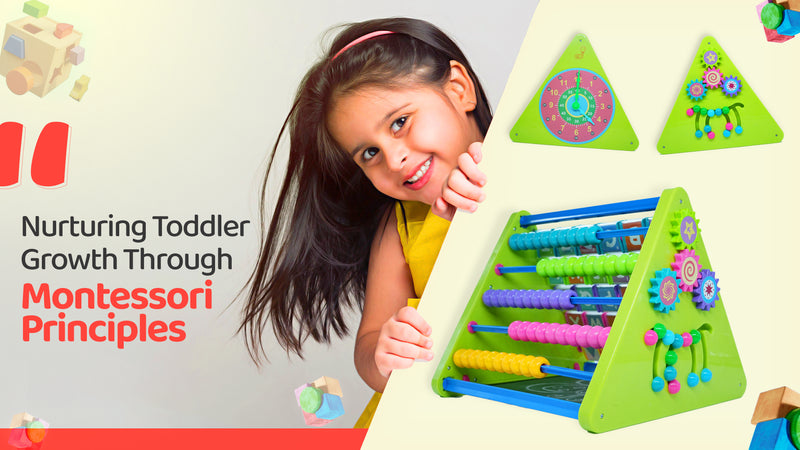Montessori education has changed early childhood learning by putting the child at the center of the learning process. This approach will help children to learn on their own, through hands-on activities, and by playing with others. One of the key aspects of utilizing Montessori principles at home or in schools is adding fun educational toys that encourage children to explore and be creative.
Why Montessori?
Montessori principles recognize that the early years are crucial for brain development. During this stage, children absorb information from their surroundings. Engaging them with the right tools, activities, and Brain development toys helps shape their cognitive, social, and emotional skills.
Montessori classrooms are crafted to provide children the freedom of choices and fostering their natural curiosity. This is where educational toys for kindergarteners and preschoolers play a significant role to help toddlers make sense of the world around them.
Choosing the Right Toys:
When selecting toys for toddlers, it is vital to focus on simplicity and functionality. Brain development toys, for instance, are designed to stimulate problem-solving and critical thinking skills. Few examples include stacking blocks, shape sorters, and puzzles. These toys not only entertain but also enhance fine motor skills and spatial awareness.
Benefits of Using Educational Toys:
- Enhancing Creativity: Fun toys like building blocks, solving puzzles, musical instruments and art supplies inspire imagination. Through open-ended play, toddlers learn to express themselves and think innovatively.
- Building Cognitive Skills: Activities like matching colors, counting beads, and completing puzzles help develop logical thinking. Educational toys for preschoolers encourage pattern recognition, memory building, and sequencing—all vital for academic success.
- Fostering Social Interaction: Most of the educational toys for kindergarteners are crafted for group activities. Games that require turn-taking or collaborative building projects teach patience, teamwork, and effective communication.
Montessori at Home:
You don’t need a fully equipped classroom to bring Montessori principles into your child’s life. Create a nurturing space at home with a selection of educational toys that align with your toddler’s interests. Rotate toys regularly to maintain engagement and encourage exploration.
Additionally, educational toys for preschoolers such as alphabet boards or math manipulatives can introduce foundational skills in a playful manner.
Final Thought:
To conclude, incorporating Montessori principles into toddler growth means creating an environment that fosters self-directed learning and exploration. By using fun educational toys from Flyi Toys for preschoolers and kindergarteners, you can support their overall development. Observe their preferences and provide the right toys to enhance their growth, helping them build confidence, curiosity, and joy.


